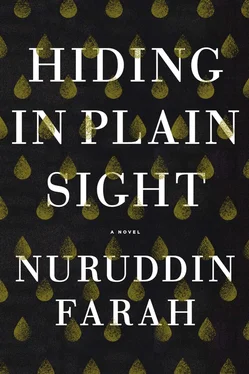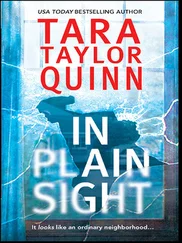“I’ll make sure she won’t,” promises Bella.
“What are their mother’s prospects in the new setup?”
“None, legally speaking.”
“Is she going back to India or moving here with her partner?”
Has Dahaba been speaking again? Bella asks herself.
“I doubt they will move here,” ventures Bella.
“But it is true that they are trouble?”
Bella changes her position. “They’ve been indiscreet.”
“With movement in the small hours of the night?”
Bella then tells an edited version of the events as they occurred. “For all we know, Padmini may have gone out for a smoke when Dahaba saw the unoccupied couch. Not that it matters in the end.”
“Is it true that Valerie wants Aar’s corpse to be exhumed, brought here, and then cremated? Because in the will we signed as witnesses in London, there is no mention of cremation or where he should be buried.”
“Valerie has the habit of creating confusion.”
“But that’s madness,” Fatima says.
They sit in silence, not knowing how to move on.
Fatima is the first to speak. “What are your plans?”
“I am here to mother Salif and Dahaba.”
“You are relocating — completely?”
“At some stage, I can envisage setting up a freelance photography business when I feel things are more settled,” says Bella. “But not now. I want them to attend universities here. I feel very comfortable in Africa and I am glad I am back on the continent and delighted that I can be of some help to my nephew and niece. It’s been traumatic, a great deal chaotic — but calmness will reign and we’ll all be happy to be together.”
“These are challenging times, aren’t they?” asks Fatima.
In a flash, Bella remembers everything she has done since coming here, but remembers nothing of what happened before that. She thinks there is something amiss and the only way to cope with this sort of personal crisis is to take the tea things into the kitchen and then go to the bathroom, wash her face with cold water, and have a moment of quiet all to herself.
She then takes leave of everyone, shouting to the children upstairs, “I have things to do, my dears.”
Older but not necessarily a great deal wiser, Bella telephones HandsomeBoy Ngulu as soon as she sets off from Fatima and Mahdi’s house. The thought of postponing their meeting until she is in a less delicate state of mind crosses her mind, but this strikes her as a cop-out, and she dismisses it. When Ngulu answers, she pulls over to talk to him.
“Hello, sweetness,” he says. “What is up?”
It takes all her self-control not to tell him that in her current state of mind there are only two people she considers entitled to address her with such an endearment: Dahaba and Salif. True, Ngulu has in the past been in the habit of using that term of affection, both in person and in his texts and e-mails. And indeed, each time he used it (“Is that you, sweetness?”), it seemed to dispossess her of some inner strength, robbing her of the power she always assumed she had over men, quickening her with feelings from the past. Which is all the more reason why she doesn’t want to hear it now. Another day, perhaps, but not today. But how is he to know how fragile she is?
She asks if they are still meeting.
He says, “I’ve been looking forward to it all day.”
“The Serena, right?”
“Right, the Serena.”
“It’ll be good to meet and talk.”
“I’ll be waiting in the back of the café bar, my dearest.”
She wonders if she should call off the tryst. Despite the verbiage, she isn’t picking up the kind of feeling she expects from a lover she is seeing after so long an absence. She senses stress in his voice, maybe dread; he sounds like an unhappy man. Nor, she notices, does he go the extra mile to express his sorrow for her loss. But she says nothing.
The first time they slept together, she was putting up at a three-star hotel, the Meridian. It was a rainy October night, and she’d come from Rome to do a bit of camera work for Oxfam. She recalls that night with amusement now. He’d climaxed before he even entered her, without so much as bothering to knock on her door. He wasn’t much good as a lover at first, but he was so young and handsome that, ogling his naked body and touching him here and there, her eyes at least felt fully satiated. Hence her nickname for him, Bell’Uomo.
As she drives, she lets Cawrala tell her where to turn while memory leads her by the hand. The second time they’d met, it was by chance, in Edinburgh. Bella had gone to Scotland to spend a romantic weekend with Humboldt. But Ngulu, who was there for a seminar on the causes of famine, spotted her walking in the rain holding hands with the sculptor. He followed them into a restaurant and sat at the bar in the corner, keeping an eye on them until they’d ordered their drinks. At which point he presented himself in a here-I-am sort of way. Bella was startled, but she felt relieved when it became clear he wasn’t going to make a scene. Speaking in Portuguese, she introduced him to Humboldt. He picked up the basics of what she said about him: that he was a Kenyan, working in Nairobi for Norwegian People’s Aid. He made as if to sit and almost pulled up a chair to join them at the table, but when they resumed their conversation in Portuguese and he couldn’t make sense of what either one of them was saying, and with Humboldt staring at him like an undertaker deciding the size of the coffin to put him in, Ngulu withdrew. Bella flew back to Rome that night and Humboldt went to London, where he was having an exhibition of his works.
Amazingly enough, she met Ngulu by chance again the following year in New York. This time she was with Cisse Drahme, her Malian lover, who was doing some research on African astronomical systems at the New York Public Library. They had just checked out of their hotel on a side street near the UN when Ngulu appeared before her and said, “Hi, fancy meeting you here.” On this occasion, Bella walked past him without a look. And when he caught up with her and said, “It is me, Ngulu,” she pretended she didn’t know him and asked him to repeat his name. If he was stalking her, she was determined to put an end to it.
Cisse took possession of Bella’s arm and the two of them walked away from Ngulu with their arms linked. He stood where he was, staring at them pulling away and wondering if he had mistaken another woman for Bella, for a time a woman of his heart.
But the next time she went to Nairobi, she was in a low mood, a big EU-funded project of hers having fallen through. She was again staying at the Meridian. Restless and in need of temporary entertainment, the kind tourists from the moneyed parts of the world enjoy when they are visiting Africa, Bella discovered she still had the landline telephone number Ngulu had given her when they first met, and on a whim, she tried it. A woman answered — his wife, his mother? She left a message with the woman, giving her name and the name of her hotel.
To her surprise and delight, he rang her from the lobby at six. When she came down, he was all spruced up. He was flaunting a well-maintained moustache, had a sports jacket on, a pair of jeans too tight in the crotch, and a silky shirt unbuttoned to display the tuft of hair on his chest. The handsome smile she remembered played around his eyes, his mouth forever parted in a grin. She knew right away that he would not mention either of their two previous encounters, as though he had wised up to the fact that reminding her of them would piss her off. And he didn’t. They talked briefly about what each had done since their last meeting, and in giving an account of his activities, he didn’t refer to either of her two prior putdowns.
Читать дальше












